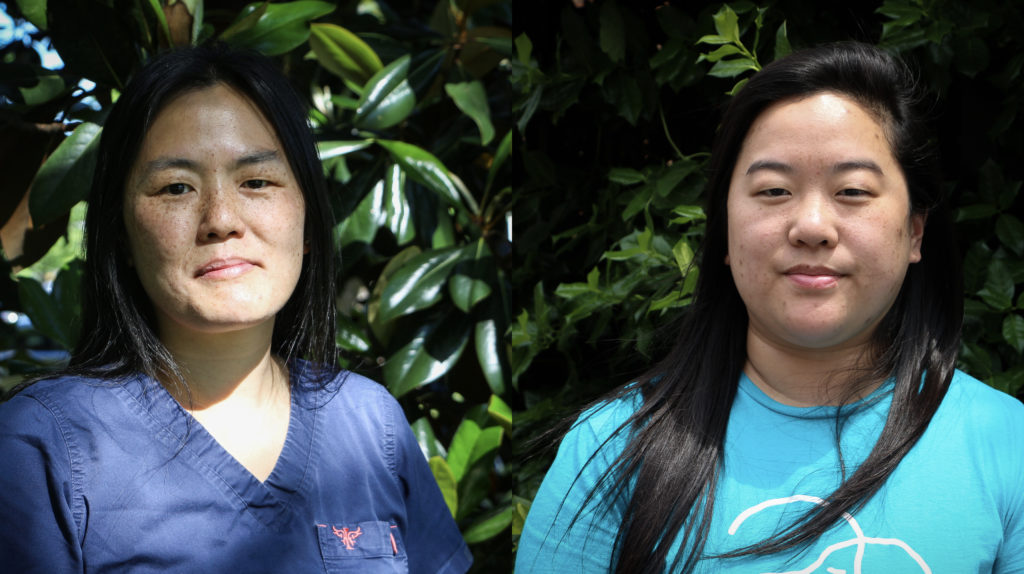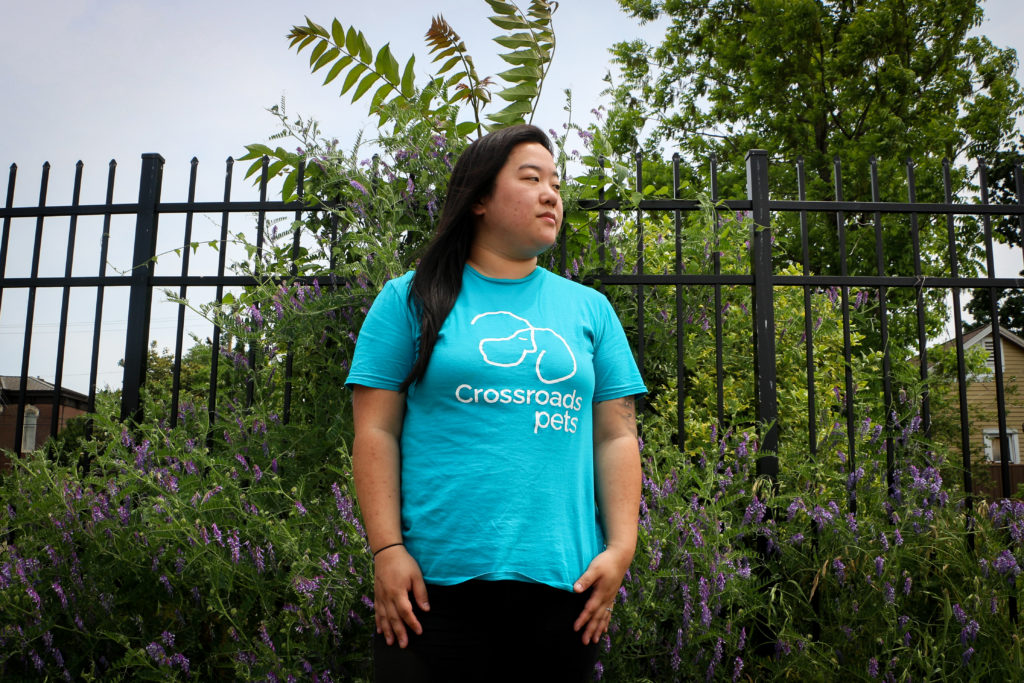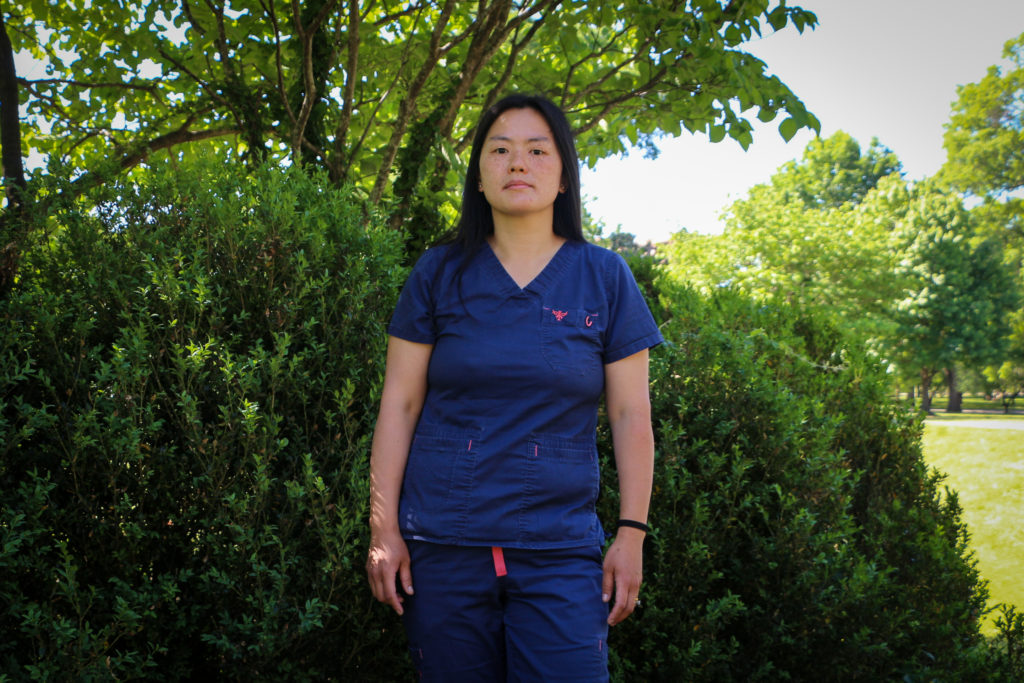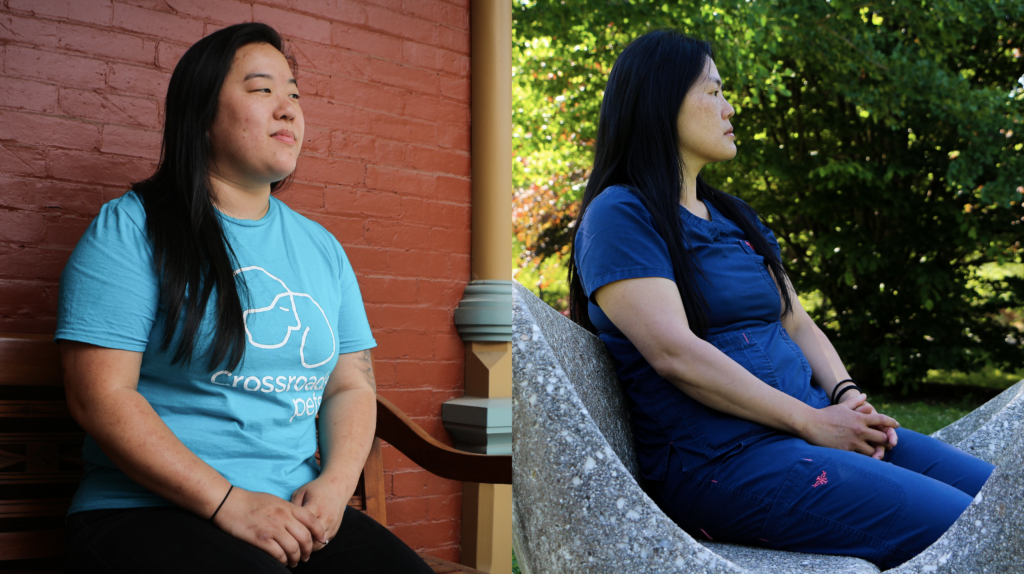
Rolling hills and a wall of bamboo loom over a small brick house in Pegram, Tennessee. It’s a sleepy town, outside Nashville, with spotty cell phone service.
Marianne Sung lives here with her partner, two dogs, and her two sons — Eli, age 11, and her toddler, Charlie.
She really likes her life now.
But sitting on her couch, she said that sometimes she thinks how it might have turned out differently — if she had made a different decision over a decade ago.
“You know, had I known more, had I been able to talk to my parents, talk to my sister, I probably wouldn’t have two kids right now,” Marianne said.
Marianne got pregnant with her first son when she was only 16.
Her story is a familiar one in Tennessee — the state is in the top 10 in the nation for teen pregnancies.
‘A lot of fear got in the way’
Marianne said there were things her family just didn’t talk about — sex included. So when she started feeling nauseous, and missed her period, she rushed to the store and bought a bunch of pregnancy tests.
“And I took five tests,” she said. “Because the first one was positive. So then I just kept taking them thinking, like, surely, it’s wrong.”
It was not wrong.
She remembered trying to find out where she could get an abortion.
But she didn’t know how. The only research she had ever done was for school projects — never anything this big, or overwhelming.
“A lot of fear got in the way,” she said.
So she hid her pregnancy. For six months.
“If I just pretend like it’s not happening, it’s not happening, right?” Marianne said.

“I got pregnant, and I knew that it was going to be the biggest disappointment,” Marianne said.
Eventually her belly grew so big, she couldn’t hide it under baggy sweatshirts and scarves anymore.
Her mom noticed and called her sister Fanny to come home.
“I don’t know that we ever had a family meeting until this moment,” Fanny said. “Just the one in the past 40 years.”
Fanny is Marianne’s oldest sister. She was 27 at the time. There’s an 11 year age difference between them.
Where Marianne is shy and quiet, Fanny is boisterous, and uninhibited. She remembered the family meeting like it just happened.
“My dad was just sitting at the kitchen counter eating his dinner, like while this is going on,” Fanny said laughing. “My mom was like, ‘Well, is it too late to get an abortion?’ I was like, ‘Yes, look at her!'”
They talked about adoption. But Fanny said their parents were against it — they are Taiwanese, and the sisters are first-generation American. Culturally, they didn’t want to give up a baby they could take care of.
So they decided, together, as a family, that they would keep him.
But while this family meeting was playing out in front of her, Fanny was sitting on a secret of her own.
 Paige Pfleger WPLN News
Paige Pfleger WPLN News“I remember saying to her, ‘I’m really sorry that you’ve had to go through this alone,'” Fanny said, remembering the aftermath of the family meeting.
‘If I had made a different choice’
Fanny had gotten pregnant years before, when she was 21.
“When I came to that crossroads, the path that her life took is the path that I avoided, you know?”
Unlike Marianne, Fanny decided to get an abortion.
“I felt a lot of relief because my life could move on in a way that it wouldn’t have been able to if I had made a different choice,” Fanny said.
She described the years after as carefree. She traveled to different countries, graduated from college, even met the man she would later marry and start a family with.
And she never told her family about the abortion.
So when Fanny found out Marianne was 6 months pregnant, she felt like it was already too late.
But Fanny always wondered: If she had shared her experience, would Marianne have chosen differently?
“At that moment I was thinking of, ‘How is your life going to be changed because of this?’ ” Fanny said.

Marianne, left, and her oldest sister Fanny.
‘Your whole life changes in an instant’
Having her first baby so young did alter Marianne’s life. She dropped out of high school, skipped college and started working.
And it changed things for her parents, too — they were just about to have an empty nest for the first time. Now, they starting over, raising Eli.
It wasn’t until a few years ago, when Marianne was pregnant with Charlie, that she got them all under the same roof.
“There are a lot of things that I’ve experienced with Charlie that … it makes me feel guilty because I’ll never get to experience that,” Marianne said. “I missed out.”
The choices the sisters made, and the ripple effects, really came into focus when they heard the news about a leaked Supreme Court decision that would overturn Roe v. Wade.
Fanny and Marianne may have reached very different decisions about their pregnancies, but they both remember how daunting it was to hold that positive test and be faced with a choice that would change their lives.
“I had options and I was fearful,” Fanny said. “I cannot imagine not having options. You’re already afraid.”
“Until you’ve gone through something like that, you don’t truly know how hard and how scary life can be,” Marianne said. “Your whole life changes in an instant.”
Marianne remembers what it was like to feel as though she had no choice. And now, she imagines what it will be like for others, like young, scared teenagers, who will feel the same.

